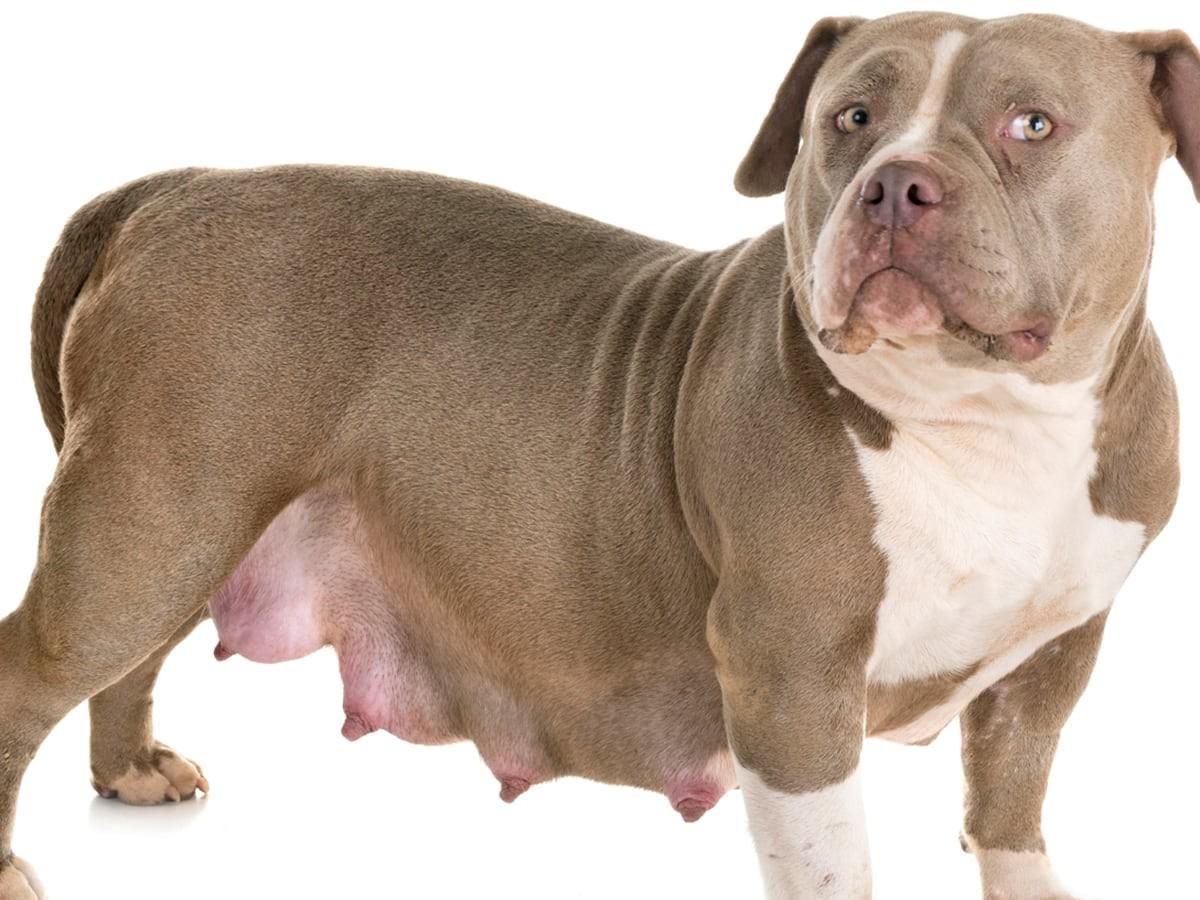Our Best Tips for Pregnant Dogs
Your dog’s pregnancy can be an exciting, confusing time as an owner. Of course, you want to make sure they are comfortable and staying healthy, but you may not know how exactly to take care of them. There are a few things you can do to help lessen the stress of pregnancy for your pup. During pregnancy, your dog will need plenty of love and affection.
As their body undergoes major changes, the way you care for them will also need to change to ensure they are getting everything they need to stay healthy. After you discover your dog is pregnant, talk to your veterinarian to get advice on what to expect. It’s also a good idea to talk to a dog breeder as they deal with dog pregnancies often and can tell you what you will need. To learn how to care for your female pup during her pregnancy, continue reading!
Nutrition Throughout Dog Pregnancy
When your dog is pregnant, basic dog food won’t cut it! It does not provide the additional nutrients and calories she will need, so you will need to make some changes to her diet. Instead of regular adult food, you will want to switch your dog to something that has been formulated for growth. A good option for this is high-quality puppy formula. Slowly introduce it to her over a period of about a week to make sure her stomach can handle it and won’t get upset. She should continue eating this food until after the puppies are born and have weaned.
As long as your dog is maintaining the proper diet, she won’t need any additional vitamins or supplements. The food you choose should also take into account any medical conditions your dog may have. Speak to your vet about what food options would be best for your specific dog.
Dog Exercise
Your dog will still need exercise throughout her pregnancy. However, they should avoid strenuous activities after four to six weeks into her pregnancy. Regular walks will keep her strength up so that she is ready for the arrival of her babies! Keep walks shorts but frequent. You should aim for three to five short walks a day.
If possible, during the last three weeks of pregnancy your do should exercise indoors as opposed to outdoors. This will keep her separated from other dogs and animals as well as will prevent her from contacting parasites and other illnesses that could affect her and her puppy’s health.
Veterinary Care
Just like with a human pregnancy, your dog will need to see their doctor a few times throughout pregnancy. Around 21 days into your dog’s pregnancy, she can receive an ultrasound or blood test to confirm it. At 45 days, your vet can take x-rays to determine how many puppies there are.
The vet is also helpful for answering any questions you may have as well as handling any complications that may arise. If your dog starts displaying any signs of illness, or has vaginal bleeding during her pregnancy, consult your vet about what to do. You will want to deal with complications very quickly as they can cause harm to not only your dog, but also her puppies!
Vaccinations
Even if your dog is overdue for her vaccinations during pregnancy, speak with your vet before giving them. Some vaccines will be safe, but others should not be administered until after she has given birth. This is because vaccines contain “modified” viruses that aren’t strong enough to cause illness in the mother but may be strong enough to infect the unborn puppies. A mother dog will pass on their immunity to their puppies through their milk, so it is ideal if your pup is fully vaccinated before mating.
Providing Comfort In The Final Stages Of Pregnancy
Toward the end of your dog’s pregnancy, she will want her own space to relax and give birth in. To accommodate her needs, you can build a “nest” or “whelping box” of sorts, where she can have privacy and feel comfortable. To build this nest, you can use common household items. Fill a cardboard box with blankets, sheets, or towels, and place the box in a quiet, peaceful room.
In addition, some dogs will become very attached to their owners during the final stages of her pregnancy. She may follow you around a lot and sometimes won’t whelp until you’re there. Be aware of this before planning vacations.
First aid
Keep your dog’s first aid kit handy throughout her pregnancy in case you ever need it. This kit should include:
Paperwork: vaccination and medical records as well as emergency phone numbers and addresses
Hydrogen peroxide
Antibiotic ointment
Gauze
Tape
Scissors
Disposable rubber gloves
Wet wipes and disposable absorbent pads
Towel
Medications
During Birth
When your dog begins to give birth, you should be there to provide her with some assistance during this challenge! Thankfully she will not need much help, but you should still watch over her to make sure there aren’t any complications. Provide her with a safe, warm, comfortable place in a peaceful area and keep a watchful eye from a distance. Keep your vets contact information close and call if you notice anything going awry. You should do some research beforehand so that you know what to expect during the birthing process.
Keep your dog happy and healthy
On behalf of Spot Pet Insurance, we are excited for you and your pup to welcome new puppies into the world! This is a very rewarding process, and we hope we were able to answer your important questions. We understand how much you cherish your furry friends and we want to be there to help you with what you may need to help keep them safe and happy.

I've had the privilege of immersing myself in the realm of pet safety. As the owner of an energetic mini golden doodle, I know just how stressful being a pet owner can be. I am dedicated to ensuring our beloved pets enjoy a life brimming with good health.
Veterinary Partner
Purina
The Spruce Pets
Everyday Health
Dog Time












